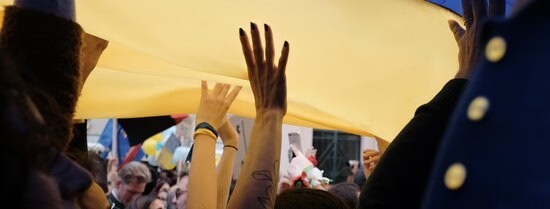The war in Ukraine is now a week old. Besides the constant threat of bombing, in fiercely contested regions it also means hunger and shortages of medicine. How do you care for a city at war? Professor of Humanitarian Studies Thea Hilhorst answers this question at RTL Nieuws.
Many Ukrainian streets are empty and going out on the street can be dangerous. If humanitarian aid is needed in a country, it is brought in as close as possible, Hilhorst told RTL Nieuws. If that is not possible in a city nearby, then perhaps in a neighbouring country, as is now the case in Poland.
Occupier has war obligations
When a transport is ready to leave for a disaster area, the question is always how things will go there. Hilhorst emphasises that the occupying forces must give free rein to food transports. “That is part of the humanitarian law of war. But Putin has already shown that he does not care too much about that.”
For example, it can happen that food transports fall into the hands of Russian soldiers. “The occupying forces may think we can find that food ourselves for the column of soldiers. Russia is not at all busy organising emergency aid at the moment. While it should be. In fact, Russia is now committing war crime upon war crime in Ukraine,” says Hilhorst.
- Researcher
- More information
Read the full article at RTL Nieuws (in Dutch).
- Related content

